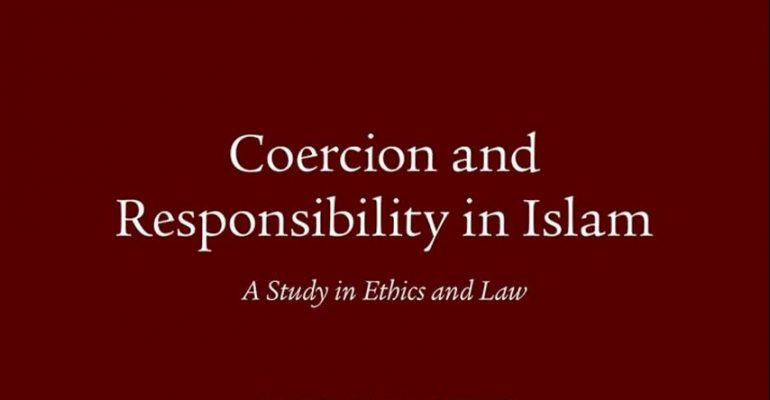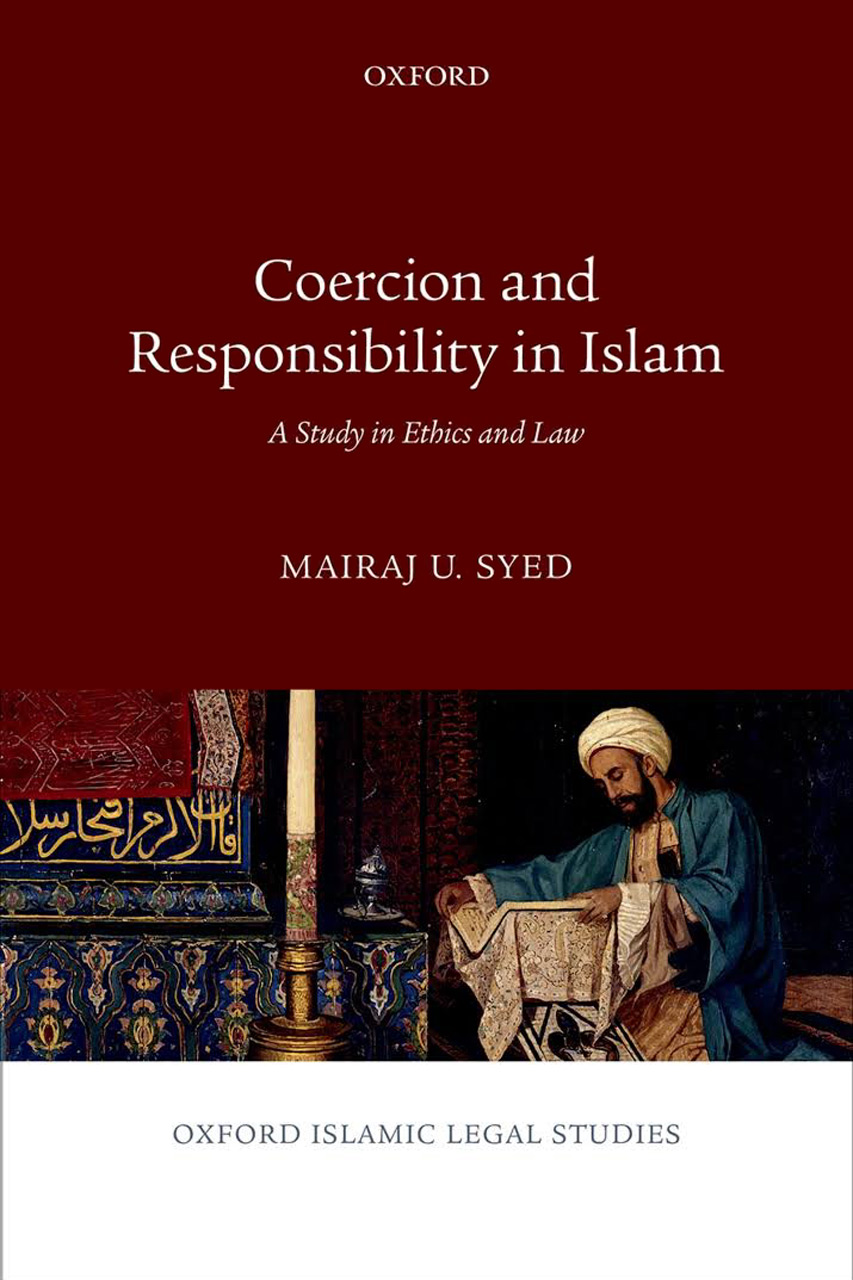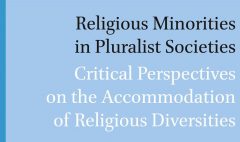Coercion and Responsibility in Islam
July 12, 2017 2023-10-08 8:45Coercion and Responsibility in Islam

Coercion and Responsibility in Islam
A Study in Ethics and Law
By Mairaj U. Syed
Publisher: Oxford University Press (November 17, 2016)
Series: Oxford Islamic Legal Studies
In Coercion and Responsibility in Islam, Mairaj Syed explores how classical Muslim theologians and jurists from four intellectual traditions argue about the thorny issues that coercion raises about responsibility for one’s action. This is done by assessing four ethical problems: whether the absence of coercion or compulsion is a condition for moral agency; how the law ought to define what is coercive; coercion’s effect on the legal validity of speech acts; and its effects on moral and legal responsibility in the cases of rape and murder.
Through a comparative and historical examination of these ethical problems, the book demonstrates the usefulness of a new model for analyzing ethical thought produced by intellectuals working within traditions in a competitive pluralistic environment. The book compares classical Muslim thought on coercion with that of modern Western thinkers on these issues and finds significant parallels between them. The finding suggests that a fruitful starting point for comparative ethical inquiry, especially inquiry aimed at the discovery of common ground for ethical action, may be found in an examination of how ethicists from different traditions considered concrete problems.
Key Features:
- Aids understanding of the legal and ethical problems involving coercion through the use of hypothetical scenarios
- Compares schools of thoughts, disciplines, and intellectuals from different cultures and times
- Conducts synchronic and diachronic analysis of legal and theological thought
- Offers a new model for how scholars should evaluate ethical thought produced by intellectual traditions in a pluralistic environment
About the Author:
Mairaj U. Syed is an Assistant Professor in the department of religious studies at the University of California, Davis. His research explores the history of Islamic legal and ethical thought, particularly areas dealing with public law, family law, and politics. He is also interested in the development of hadith literature and the social network that transmitted and preserved it in the first 250 years of Islamic history. Syed holds Ph.D. in religion from Princeton University, and a bachelor’s degree in Business Administration from the University of Texas, Austin.
Table of Contents:
Introduction
1. Compulsion and Moral Agency in Muʿtazilism
2. Coercion and Moral Agency in Ashʿarism
3. Defining Coercion in Ḥanafism
4. Defining Coercion in Shāfiʿism
5. Coerced Speech Act Jurisprudence in Ḥanafism and Shāfiʿism
6. Coerced Harm Jurisprudence in Ḥanafism and Shāfiʿism
Conclusion
Reviews
– “Mairaj Syed’s important work traces accounts of coercion and responsibility in several of the most important Muslim theological and juridical schools. That contribution is impressive enough. Syed ranges more widely, however, proposing that we explain certain features of these differing accounts by way of the factors he calls “constraint” and “contingency”. In addition, Syed opens the door for comparison between Muslim and Anglo-American approaches to his subject. He thus makes contributions to the comparative study of law and ethics, as well as to the history of Muslim tradition. This is a very fine piece of work.” (John Kelsay, Florida State University, USA)
– “Lucid, erudite and highly original, Syed’s book analyses an important, yet hitherto understudied, concept central to the ethical reasoning of classical Islamic thought. It makes a valuable contribution to bridging the divide between the study of jurisprudence and the study of theology, and should be read by those interested in either field.” (Ayman Shihadeh, SOAS, University of London)
Source: Oxford University Press









